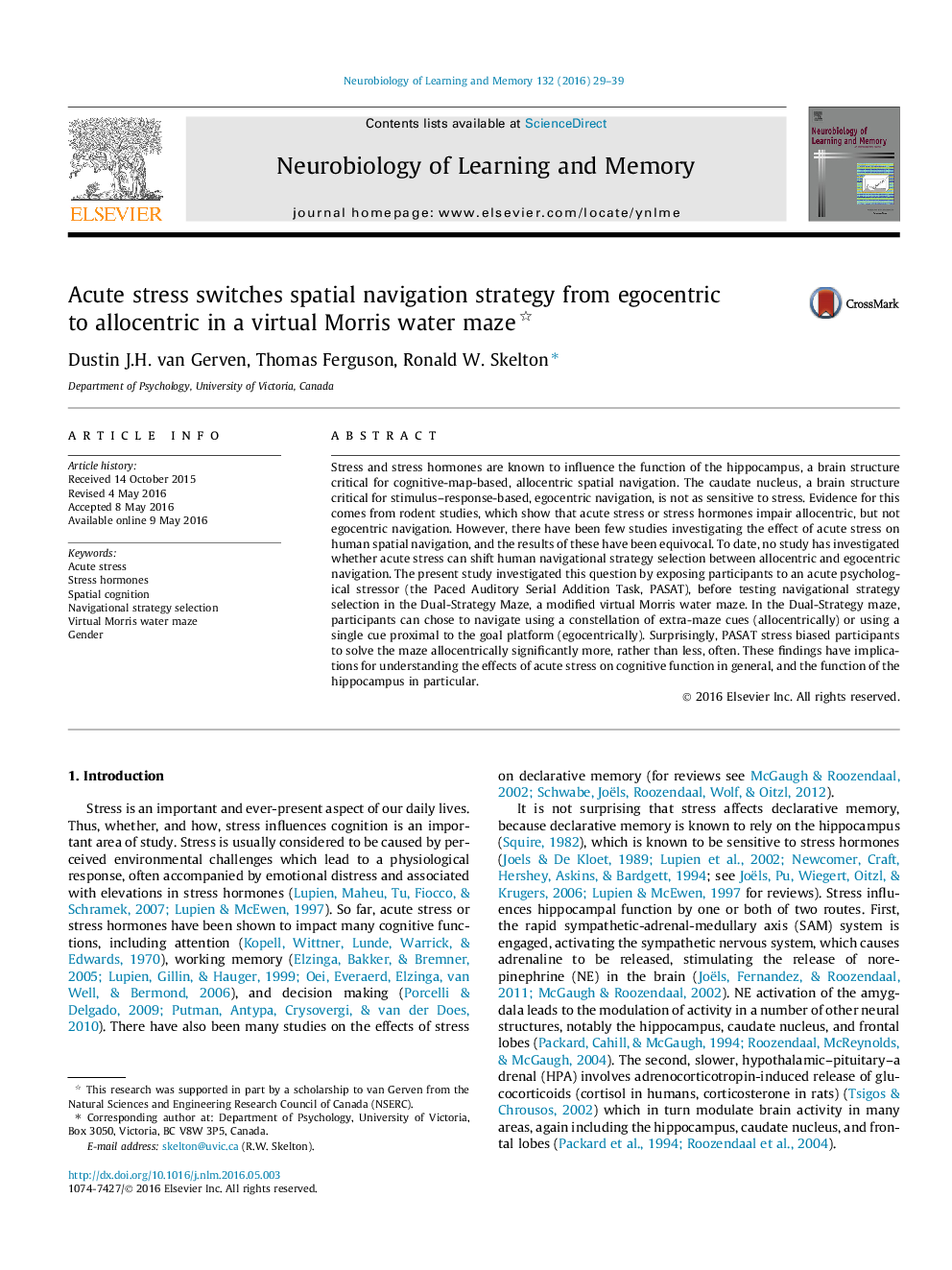| کد مقاله | کد نشریه | سال انتشار | مقاله انگلیسی | نسخه تمام متن |
|---|---|---|---|---|
| 936471 | 1475143 | 2016 | 11 صفحه PDF | دانلود رایگان |
• Psychological stress increased preference for allocentric navigation.
• The effect was independent of gender, time of day and cortisol elevation.
• The stress elevated sympathetic activity and perceived stress.
• The stress had no effect on navigational performance.
Stress and stress hormones are known to influence the function of the hippocampus, a brain structure critical for cognitive-map-based, allocentric spatial navigation. The caudate nucleus, a brain structure critical for stimulus–response-based, egocentric navigation, is not as sensitive to stress. Evidence for this comes from rodent studies, which show that acute stress or stress hormones impair allocentric, but not egocentric navigation. However, there have been few studies investigating the effect of acute stress on human spatial navigation, and the results of these have been equivocal. To date, no study has investigated whether acute stress can shift human navigational strategy selection between allocentric and egocentric navigation. The present study investigated this question by exposing participants to an acute psychological stressor (the Paced Auditory Serial Addition Task, PASAT), before testing navigational strategy selection in the Dual-Strategy Maze, a modified virtual Morris water maze. In the Dual-Strategy maze, participants can chose to navigate using a constellation of extra-maze cues (allocentrically) or using a single cue proximal to the goal platform (egocentrically). Surprisingly, PASAT stress biased participants to solve the maze allocentrically significantly more, rather than less, often. These findings have implications for understanding the effects of acute stress on cognitive function in general, and the function of the hippocampus in particular.
Journal: Neurobiology of Learning and Memory - Volume 132, July 2016, Pages 29–39
